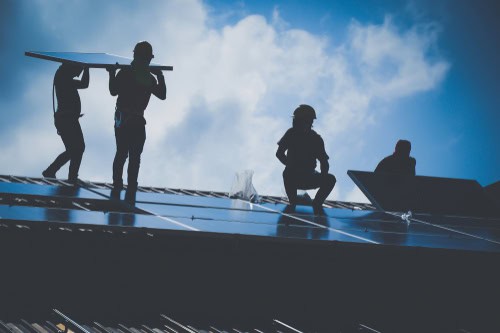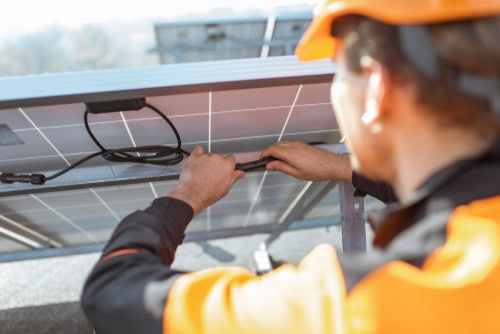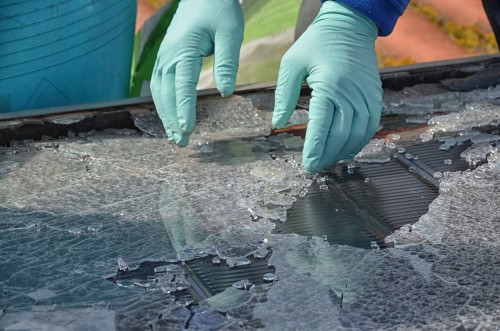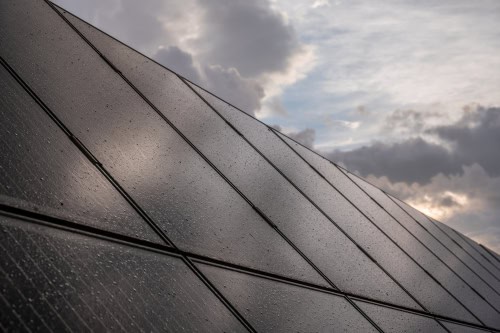
Mistakes To Avoid When Cleaning Solar Panel
November 17, 2021
What Happens If I Don’t Clean Solar Panels?
March 6, 2022Can Lightning Struck My Solar Panels?

Can Lightning Struck My Solar Panels? Lightning is a discharge of static electricity that can be very dangerous to any electronic equipment including solar panels. Solar panels are sources of electricity that are stored in batteries to be used during the daytime and the night, which makes them an easy target for lightning especially if they are correctly installed.
A direct hit with lightning will not only damage the solar panel but also will damage all your electrical appliances and wiring. When a direct hit occurs it can burn the silicon and damages the panel in such a way that it will never work again.
However, lightning can also cause indirect damage to solar panels by sending surges of electricity through the building’s wiring. This is possible whether or not they are directly struck by lightning. Surges are more common than direct hits and can be just as damaging. They can easily fry the delicate electronics inside the solar panel and render them inoperative.
So, the answer to the question is “yes”, lightning can damage solar panels, but it is not very likely to happen. If your solar panels are properly installed and you take some basic precautions, the chances of the solar panel being damaged by a lightning strike are very slim. If you are still concerned, you can purchase a surge protector to help protect your panels from surges in electricity.
Ways To Prevent Your Solar Panels From Getting Struck By Lightning

1. Use a Professional to Install Your Solar Panels
A professional will know how to install your solar panels in such a way that they are less likely to be struck by lightning. When panels are installed with roofs, there are fewer places for lightning to strike. If panels are mounted on poles rather than being flush with the roof or wall, they can attract lightning. Ensure you engage a qualified professional to install your solar panels.
2. Ensure Your Solar Panels Are Grounded
Grounding the solar panel will ensure that if a lightning strike occurs it will be passed safely into the ground and not affect any of your other electrical appliances or wiring. This is usually done by attaching a grounding wire from the roof or body of the solar panel and attaching it to a grounding rod.
3. Ground Your House Wiring
Grounding your house wiring is important in preventing the electrical surge from entering your home and causing damage indoors. You can hire a professional electrician to accomplish this or you can do it yourself by purchasing the necessary equipment and tools then following the instructions that come with them carefully.
4. Install a Surge Protector
A surge protector is an inexpensive way to protect your solar panels and other electrical equipment from the damaging effects of a lightning strike. A surge protector will absorb the energy of the surge and dissipate it safely without damaging any of your appliances.
5. Avoid Open Wires

Make sure that there is no naked wire on the wiring system of the solar panels. Wherever possible, use closed wiring that will not attract lightning or create a path for the electrical surge to follow. The less exposed wiring there is, the less chance there is for a lightning strike to damage your solar panels.
6. Place Solar Panels Where They Will Not Be Struck by Lightning
If you live in an area that is prone to lightning strikes, try to install your solar panels in a location that will be less likely to be hit. If they are on the roof, install them near the edge or on a north-facing slope. If they are mounted on poles, keep them away from tall trees or other objects that could attract lightning.
7. Disconnect Solar Panels During a Storm
If a storm is brewing and you know that your solar panels are susceptible to lightning strikes, you can disconnect them from the system to minimize any damage if lightning strikes. This is only advisable in extreme cases, however. If you are unable or unwilling to disconnect your solar panels, at least turn of the inverter so that it will not be transferring electricity during a lightning storm.
8. Install Surge Protection on Other Appliances
Although it is best not to think about it, the electrical surge created by lightning could affect other appliances or equipment in your home. You can minimize any damage by installing surge protectors on all of your important appliances and electronics.
9. Move Your Solar Panels Away From Sheds and Other Electrical Equipment
If you have solar panels that are attached to a shed, make sure that the shed is not located near any other electrical equipment. The metal on the shed can create a path for the electrical surge to follow and damage the equipment.
These tips will help you to protect your solar panels from the damaging effects of a lightning strike. By following these simple tips, you can keep your solar panels in good condition and continue to enjoy their benefits for years to come.
What to do if your solar panels are struck by lightning

If your solar panels are hit by lightning, there are a few things you can do to minimize the damage. The most important thing is to ensure that they are properly grounded. This will help to dissipate the electrical surge safely into the ground. You can also install a surge protector to absorb the energy of the strike and prevent any damage to your equipment.
In some cases, it may be necessary to replace a solar panel if the damage from lightning is too great. However, even one solar panel can still generate electricity for you. In this case, make sure that the grounding wires are connected properly to ensure proper circuit protection. If you have more questions after reading this article, contact your local solar panel company or manufacturer for more advice.
Can Lightning Struck My Solar Panels? – Conclusion

Lightning strikes can be a devastating event for solar panels. However, by following these simple tips you can minimize the risk of damage and keep your solar panels in good condition to generate electricity for years to come. If you have any questions about how best to protect them from lightning strikes or want help installing surge protection on other appliances, contact your local electrician.




